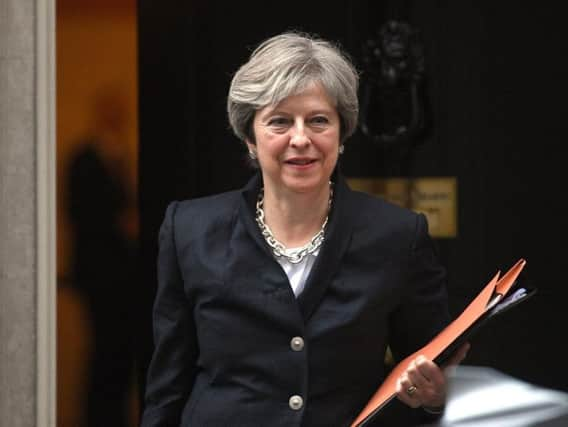A half in, half out approach cannot work


That happened at the start of the week, when we heard the term ‘regulatory convergence’ for the first time, but that hastily disappeared. That happened when the DUP made clear to the government that they did not see this as the best of both worlds for Northern Ireland, but as an outcome that would not work politically or economically. Whether or not that is the case we are unlikely to find out, as the government struggles for a Plan B it can sell here, in London, in Brussels and in Dublin. This is a tall order, but things move quickly in the uncharted waters of Brexit travel.
Even if something is fudged to allow the Brexit talks to move to the next stage, which will cover trade, there is a difference between that and a final deal. All we will get at this stage would be the building blocks of a deal, but agreement is a long way down an uncertain road. One of many possibilities is that aspects of the economy, including agriculture across the UK, could operate in parallel with the EU-27. It is as difficult to see how this would work, as it was to see how regulatory convergence with the Republic of Ireland, and by definition the rest of the EU-27, might have worked.
Advertisement
Hide AdAdvertisement
Hide AdThe most important market for farming and food here is the UK. Any moves that might make access more difficult would not work. This was made clear by both the farming and key parts of the business lobby after the talks in Brussels collapsed last Monday. At the same time the UK is the Republic’s most important market for food exports and it needs to maintain access on favourable trading terms. That does not however protect it from the growing trend where UK supermarkets are making a big point of selling British only beef, bacon or lamb for their premium products. Any moves that would deny Northern Ireland full access to that market through the Red Tractor scheme would be bad for the industry.
The other side of this coin is how this concept would work for the rest of the EU, and whether it would bring a greater regulatory burden for farmers. If a region of the UK, or indeed the rest of the UK, is to have access to the EU-27 single market through negotiation farmers there will insist food fully meets EU rules. We would have demanded the same, and frequently did so, over countries like Brazil supplying into the EU.
Delivering on that would mean continuing to meet CAP rules in areas such as the environment, production methods and animal welfare – or satisfying Brussels that UK standards are equivalent or better. That would be an administrative nightmare, but it is one that lies ahead if we are to continue accessing the single market from outside the customs union.
The other problem is what would happen over other trade deals the UK wants to make after Brexit. This is the prize promised by those enthusiastic about the long term benefits for the UK of leaving the EU. However, no matter what ministers may say to the farming lobby about food quality and standards, we know the government wants to throw its markets open to secure export trade deals. This would see a surge in imports of cheap meat from South America or Asia and dairy products and lamb from the southern hemisphere. The French farming lobby is already warning that any post-Brexit deal for the UK or Northern Ireland could see it used as a back-door way to get imported products into the EU market. If that is to be avoided across the land border between here and the Republic it is hard to see how that could be delivered without some form of customs checks. On that basis a seamless border is theoretically impossible, unless the UK relents and remains in the customs union. That would however end government plans for wider trade deals.
Advertisement
Hide AdAdvertisement
Hide AdThese are economic realities and they confirm that there is no easy Brexit solution on the cards for Northern Ireland or indeed the rest of the UK. As time passes it seems more clear that being half in and half out of the EU simply cannot work, and it would be healthy if politicians admitted that.